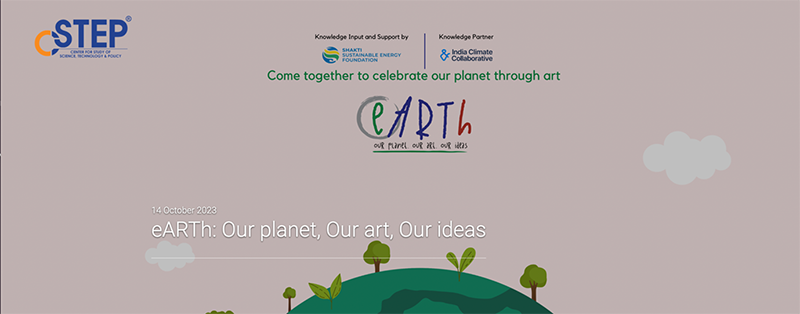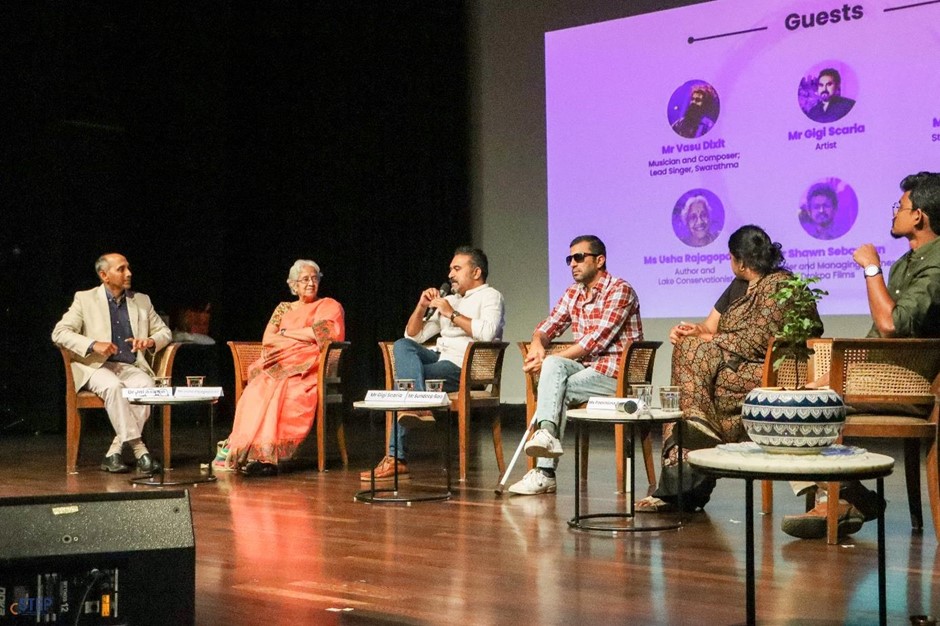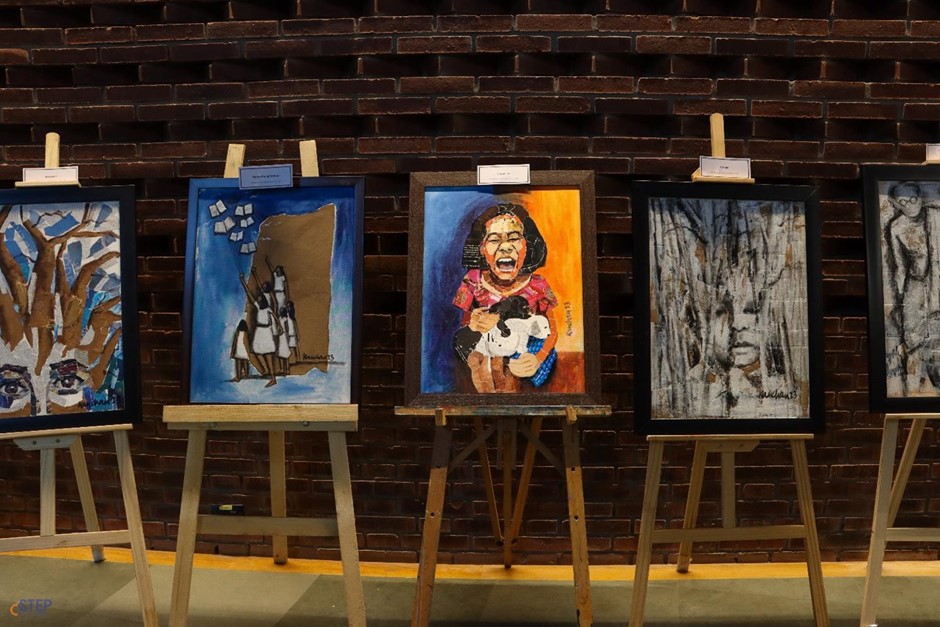
CSTEP launched the eARTh Initiative on October 14, 2023, at the Bangalore International Centre, bringing art to the heart of climate action. The event brought together scientists, artists, conservationists, and citizens to explore how art and science can meet to trigger a positive change for the planet. Shakti Sustainable Energy Foundation is part of eARTh, an initiative to inspire climate action through art, by providing knowledge inputs and support . India Climate Collaborative is a knowledge partner.

The panel discussion on ‘How can art and the artist contribute to the climate conversation?’ explored new avenues through which art can embrace science and motivate citizens to incorporate behavioural changes that promote climate action.


The event also had invigorating musical performances from Vasu Dixit and Anoushka Maskey.

The Bangalore Little Theatre performed Thermos, a short and interactive play on global warming and climate change.

The objective of the eARTh Initiative is to build a community/collective of artists and communicators to highlight the climate crisis in an accessible manner to trigger climate action. An artist collective to mentor young artists and a climate fellowship for students are also in the works.
Concept Note
We are at a crossroads with climate change upon us. Yet, we have not responded with the urgency that is required for a crisis of this magnitude. Manifesting the boiling frog syndrome, we sweat and swelter in the heat, rather than take decisive actions that can put brakes on the impending disaster threatening our planet. If climate change is a market failure, is climate inaction a communication failure, partially? If so, where scientific research and data alone have not been able to bridge the gap between information and climate action, what role can art and artists play? How can we inspire a meaningful change by delving into an artist’s understanding of climate change? Research has shown that visual narratives help people process and respond to situations more effectively than dry facts alone. Art can evoke emotions, trigger deep critical thinking, facilitate communication across fields of research and between diverse stakeholders, while, most importantly, enabling participation in solving the problem. Beyond communicating and documenting climate science, art can help overcome psychological barriers to climate action and act as ‘an emotional motor for behaviour change.’ Evoking an emotional response to climate change is critical—research has shown how emotional distance is one of the most important barriers to climate action. CSTEP’s event, eARTh, is an effort at inspiring climate action through art. To quote leading environmentalist Bill McKibben: “One species, ours, has by itself in the course of a couple of generations managed to powerfully raise the temperature of an entire planet, to knock its most basic systems out of kilter. But oddly, though we know about it, we don’t know about it. It hasn’t registered in our gut; it isn’t part of our culture. Where are the books? The poems? The plays? The goddamn operas? Compare it to, say, the horror of AIDS in the last two decades, which has produced a staggering outpouring of art that, in turn, has had a real political effect.” Art can disrupt the norm of a sender-receiver pattern of communication and instead engage individuals and communities in co-creation—making climate action a participatory process, which is the need of the hour. At CSTEP’s event eARTh, we will bring together environmental artists practicing different mediums and styles to explore how art and science can meet to trigger a positive change—for the planet. The event will also encourage the participants to partake in activities designed to support policy decision-making and enable climate-positive action.
